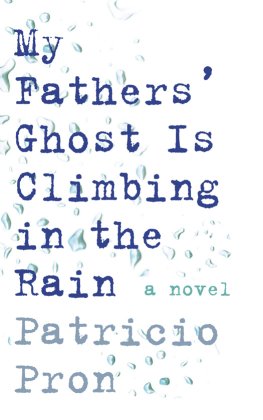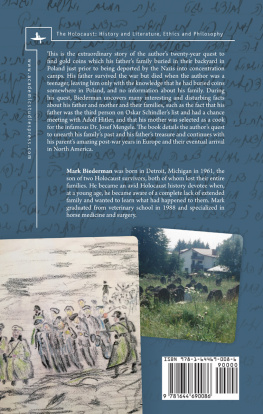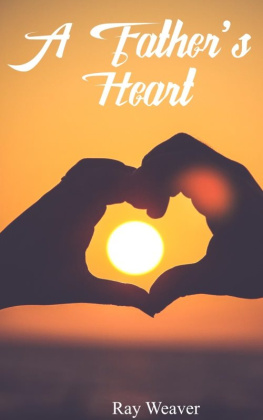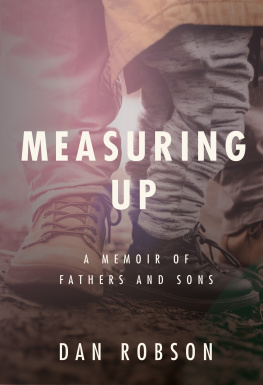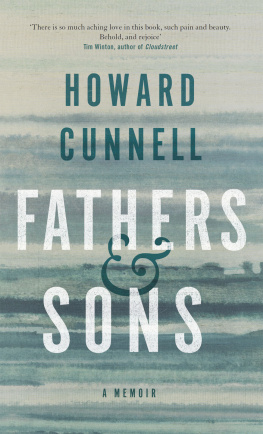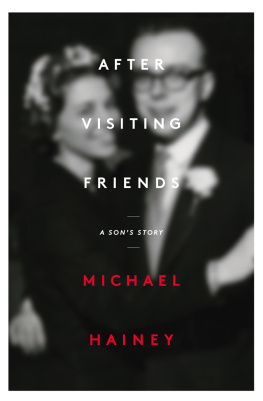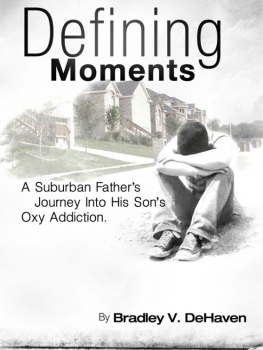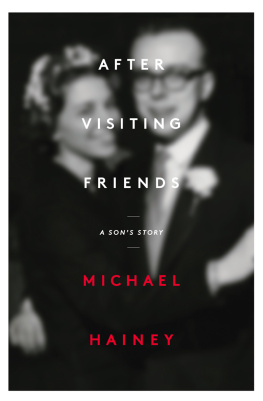Patricio Pron
My Fathers' Ghost is Climbing in the Rain
They are murdering all the young men.
For half a century now, every day,
They have hunted them down and killed them.
They are killing them now.
At this minute, all over the world,
They are killing the young men.
They know ten thousand ways to kill them.
Every year they invent new ones.
Kenneth Rexroth, Thou Shalt Not Kill: A Memorial for Dylan Thomas
The true story of what I saw and how I saw it [] is after all the only thing Ive got to offer.
Jack Kerouac
Between March or April 2000 and August 2008, while I was traveling and writing articles and living in Germany, my consumption of certain drugs made me almost completely lose my memory, so that what I remember of those eight years at least what I remember of some ninety-five months of those eight years is pretty vague and sketchy: I remember the rooms of two houses I lived in, I remember snow getting in my shoes as I struggled to make my way to the street from the door of one of those houses, I remember that later I spread salt and the snow turned brown and started to dissolve, I remember the door to the office of the psychiatrist who treated me but I dont remember his name or how I found him. He was balding and weighed me on every visit; I guess it was once a month or something like that. He asked me how things were going, and then he weighed me and gave me more pills. A few years after leaving that German city, I returned and retraced the path to that psychiatrists office and I read his name on the plaque alongside the other doorbells, but it was just a name, nothing that explained why Id visited him or why hed weighed me each time, or how I could have let my memory go down the drain like that; at the time, I told myself I could knock on his door and ask him why Id been his patient and what had happened to me during those years, but then I thought I should have made an appointment, that the psychiatrist wouldnt remember me anyway, and, besides, Im not really all that curious about myself. Maybe one day a child of mine will want to know who his father was and what he did during those eight years in Germany and hell go to the city and walk through it, and, perhaps, with his fathers directions, hell show up at the psychiatrists office and find out everything. I suppose at some point all children need to know who their parents were and they take it upon themselves to find out. Children are detectives of their parents, who cast them out into the world so that one day the children will return and tell them their story so that they themselves can understand it. These children arent judging their parents its impossible for them to be truly impartial, since they owe them everything, including their lives but they can try to impose some order on their story, restore the meaning that gets stripped away by the petty events of life and their accumulation, and then they can protect that story and perpetuate it in their memory. Children are policemen of their parents, but I dont like policemen. Theyve never gotten along well with my family.
My father got sick at the end of those years, in August 2008. One day, probably on her birthday, I called my paternal grandmother. She told me not to worry, that theyd taken my father to the hospital only for a routine checkup. I asked her what she was talking about. A routine checkup, nothing important, replied my grandmother; I dont know why its taking so long, but its not important. I asked her how long my father had been in the hospital. Two days, three, she answered. When I hung up with her, I called my parents house. No one was there. Then I called my sister. A voice answered that seemed to come from the depths of time, the voice of everyone who has ever waited for news in a hospital hallway, a voice of tiredness and desperation. We didnt want to worry you, my sister told me. What happened? I asked. Well, answered my sister, its too complicated to explain to you now. Can I talk to him? I asked. No, he cant talk, she replied. Im coming, I said, and I hung up.
My father and I hadnt spoken in some time. It wasnt anything personal, I just didnt usually have a telephone on hand when I wanted to talk to him and he didnt have anywhere to call me if he ever wanted to. A few months before he got sick, I left the room Id been renting in that German city and started sleeping on the couches of people I knew. I didnt do it because I was broke, but for the feeling of irresponsibility that I assumed came with not having a home or obligations, with leaving everything behind. And honestly it wasnt bad, but the problem is, when you live like that you cant have many possessions, so gradually I parted with my books, with the few objects Id bought since arriving in Germany and with my clothes; all I held on to were some shirts, because I discovered that a clean shirt can open doors for you when you have nowhere to go. I usually washed them by hand in the morning while I showered and then let them dry inside one of the lockers at the library in the literature department of the university where I worked, or on the grass in a park where I used to go to kill time before searching out the hospitality and companionship of the owner of some sofa. I was just passing through.
Sometimes I couldnt sleep; when that happened, Id get up off the sofa and walk toward my hosts bookshelves, always different but also always, without fail, located beside the sofa, as if reading were possible only in the perpetual discomfort of that piece of furniture in which one is neither properly seated nor completely stretched out. Then I would look at the books and think how I used to read them one right after the next but how at that point they left me completely cold. On those bookshelves there were almost never books by those dead writers Id read when I was a poor teenager in a poor neighborhood of a poor city in a poor country, and I was stupidly insistent on becoming part of that imaginary republic to which they belonged, a republic with vague borders in which writers wrote in New York or in London, in Berlin or in Buenos Aires, and yet I wasnt of that world. I had wanted to be like them, and the only proof that remained of that determination, and the resolve that came with it, was that trip to Germany, the country where the writers that most interested me had lived and had died and, above all, had written, and a fistful of books that already belonged to a literature I had tried and failed to escape; a literature like the nightmare of a dying writer, or, better yet, of a dying, talentless Argentine writer; of a writer, lets say, who is not the author of The Aleph, around whom we all inevitably revolve, but rather the author of On Heroes and Tombs, someone who spent his whole life believing that he was talented and important and morally unquestionable and who at the very end discovers that hes completely without talent and behaved ridiculously and brunched with dictators, and then he feels ashamed and wants his countrys literature to be at the level of his miserable body of work so that it wasnt written in vain and might even have one or two followers. Well, I had been part of that literature, and every time I thought about it, it was as if in my head an old man was shouting Tornado! Tornado! announcing the end of days, as in a Mexican film I had once seen; except that the days had kept coming and I had been able to grab onto the trunks of those trees that remained standing in the tornado only by quitting writing, completely quitting writing and reading, and by seeing books for what they were, the only thing that Id ever been able to call my home, but complete strangers in that time of pills and vivid dreams in which I no longer remembered nor wanted to remember what a damn home was.

